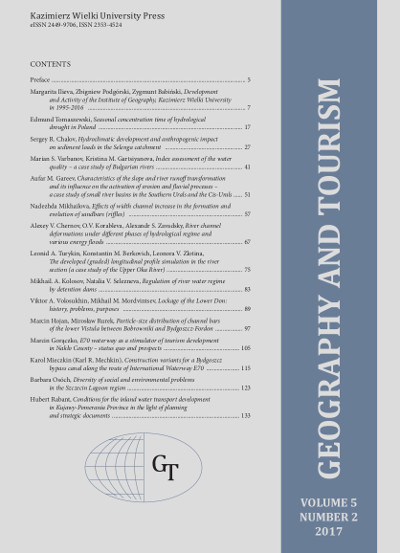Index assessment of the water quality – a case study of Bulgarian rivers
Keywords:
water quality, index assessments, physicochemical indicators, BulgariaAbstract
Development and implementation of indexation methods used in the assessment of surface water quality (pollution) is particularly relevant in recent years. Currently, hydrological practice actively uses several dozen indices. The existence of so many indices offers the possibility of testing and choosing those that provide a complete and thorough characterization of the anthropogenic impact as well as the types and forms of pollution inselected rivers in Bulgaria. We calculated four indices: the Water Quality Index – WQI, the Combinatorial Index of Water Pollution – CIP, the Index of Water Pollution – IWP and the Index of Oxygen Balance in river water – IOB for the Bulgarian rivers: the Topolnitsa River, the Vacha River, the Lesnovska River and the Provadiyska River. The results show that complex (index) methods are very effective methods for assessing the quality of river water, especially in the context of anthropogenic impact. Uniform indices also allow to compare the water quality status of different rivers and regions.

